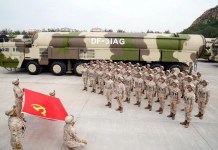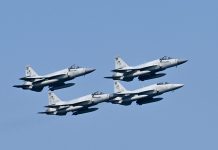Europe’s next-gen fighter jet program FCAS is facing some teething problems, with two prime contractors — Airbus and Dassault Aviation — locking horns over the aircraft’s feasibility and the issue pertaining to who will lead the initiative.
On March 10, Eric Trappier, chairman and chief executive officer of Dassault Aviation, was heard by the Committee on Foreign Affairs, Defense and Armed Forces of the French Senate, to discuss the relevance of the project and its viability.
The FCAS (Future Combat Air System) is a multinational program involving Spain, France, and Germany, and brings together several European companies led by Airbus and Dassault.
While the two aerospace giants have agreed to a 50-50 share in the aircraft’s development, Trappier criticized the inclusion of the Spanish branch of Airbus, stating imbalance in negotiations.
“If two states ally, they will make the decisions,” he explained. “How can we ensure our French leadership and our French project management in such an organization?”

“For the NGF and Pillar 1, it’s a two-person household, with Airbus and Dassault, but Airbus weighs two-thirds and Dassault a third. The situation is worse: the 50/50 equilibrium where Dassault held the leadership has shifted to two-thirds/one-third.”
According to Aerotime Hub, Airbus’ weight in the project already forced Dassault to make concessions. For example, Dassault reportedly accepted that about 50% of “work packages” were to be done without a designated manager and that the other half would be divided into three, leaving only a third for the French manufacturer to lead.
While there are more points of contention including those of intellectual property rights and ownership, the Dassault CEO said that his company is ready for a ‘Plan-B’ in case the situation isn’t resolved.
However, on March 17, Dirk Hoke, CEO of the defense wing of Airbus, and Antoine Bouvier, the head of Airbus strategy, mergers and public affairs, were called before the French senate to testify.
As the conversation ensured, Hoke stressed that there is no alternative to the FCAS program. Urging to calm the tensions amongst themselves, he said that “there is no plan-B”, as suggested by Trappier’s apprehensions.
He tried to put a broader perspective of Europe’s greater interests, and that the failure of the program would lead to more dependence on Americans.
A speedily inked deal is critical [for Airbus] so Germany’s parliament has time to study and approve it before the summer recess in late June, DefenseNews quoted Hoke as saying.
Hoke added the timing and the political context in Germany is the reason why Airbus has largely kept quiet about the FCAS kerfuffle as there is no telling how the issue would fare if dragged into Germany’s election season.
Follow EurAsian Times on Google News




